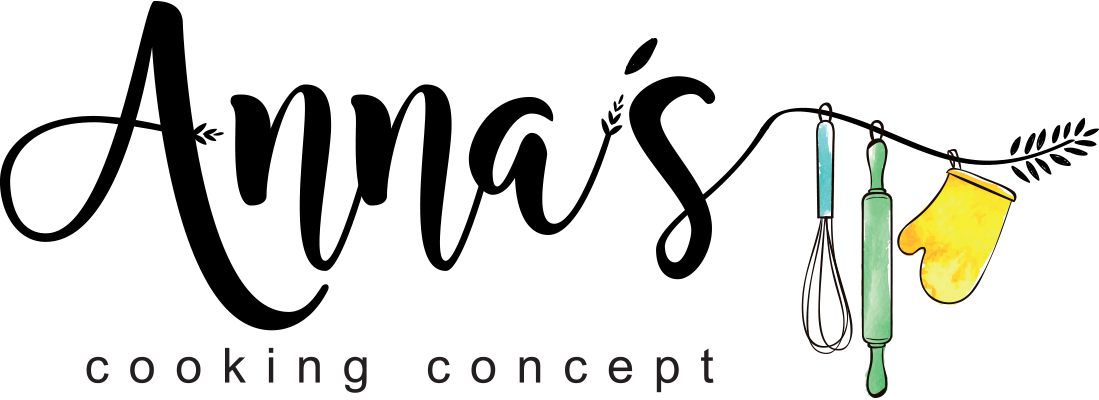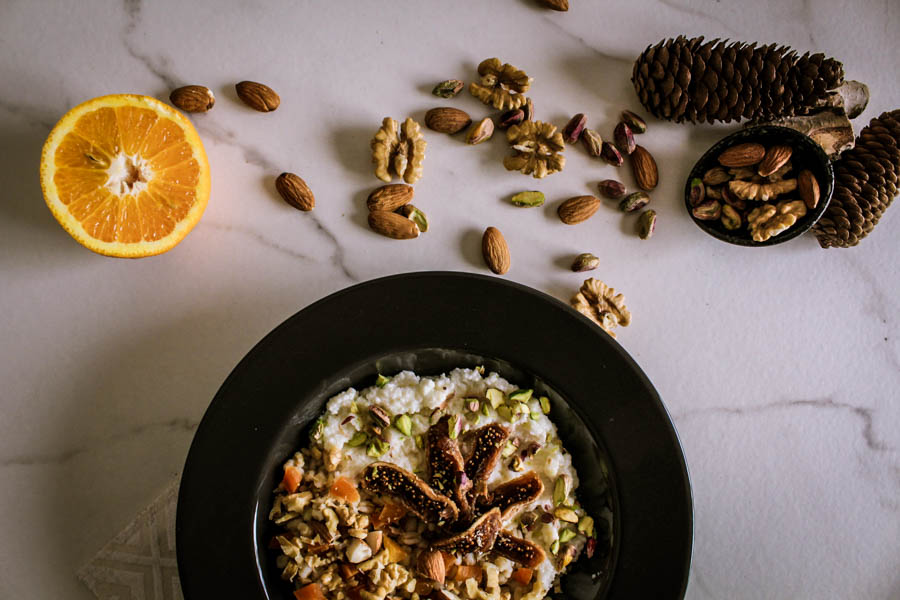Today’s recipe is a result of two important reasons.
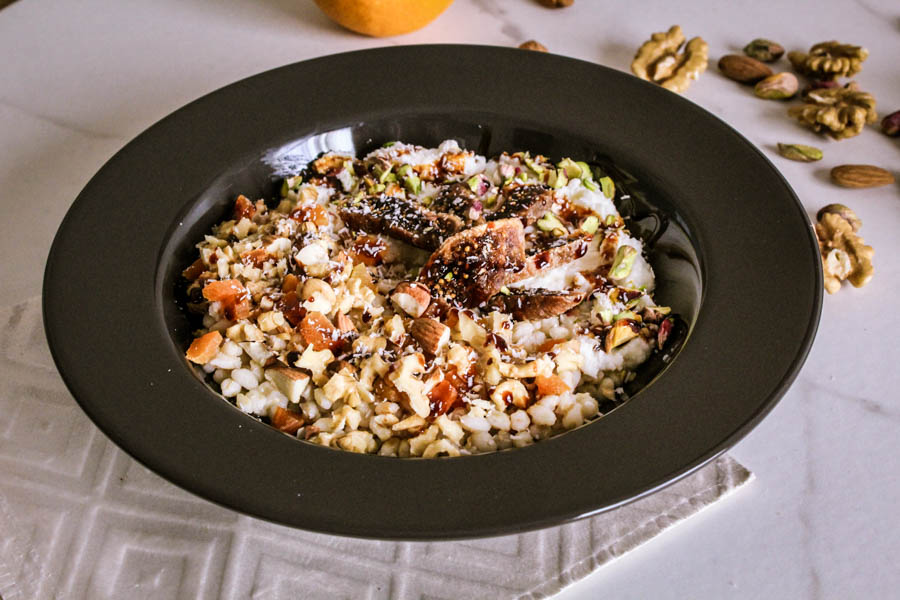
First, I had some St. Barbara leftovers that I didn’t want it to go to waste.
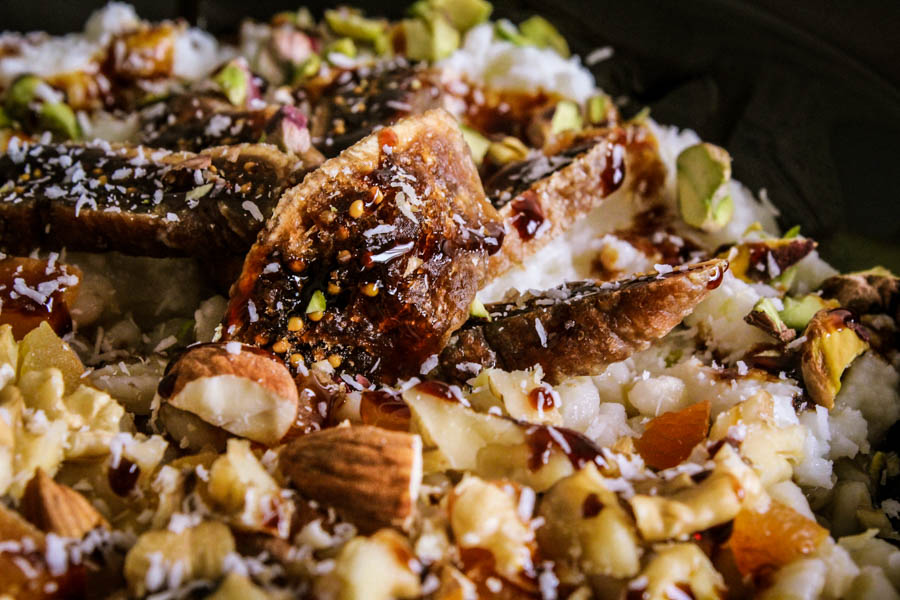
And second and the most important reason, I wanted to talk about a very important ingredient that we don’t take advantage of its benefits often as we need too. And this is just a shame, especially in our local countries over the Mediterranean and the Arabic world because it is available easily. In fact some people even avoid it, because they think it is not good for weight loss or for the health in general. And that people is very wrong!
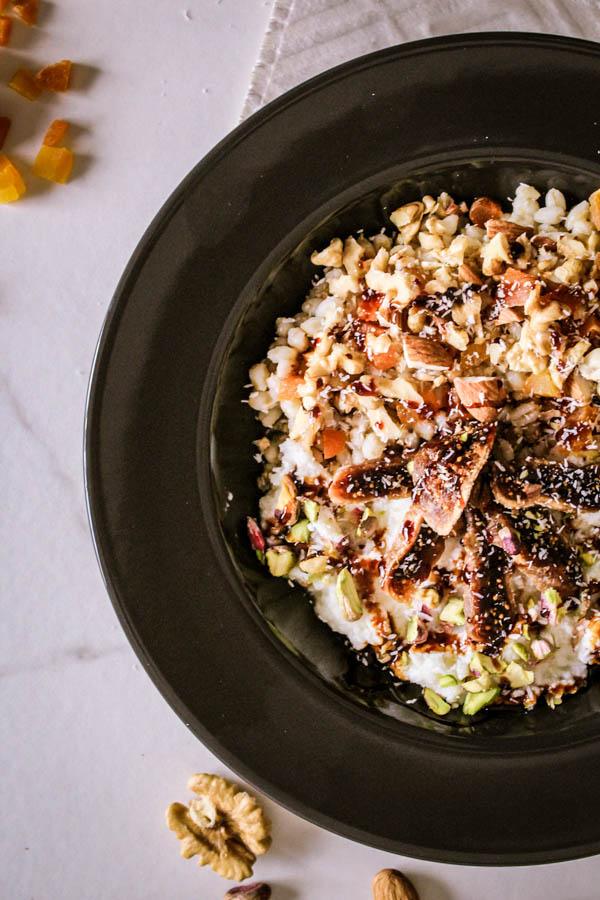
Our ingredient for today is the “WHOLE WHEAT GRAIN”. In the last decade, wheat grain has been modified, and bleached and processed in so many ways that people start thinking that the problem is from it but in fact the problem is not from the wheat because the whole wheat grain are as much benefit as any other grains and seeds that being promoted as “healthy” nowadays.
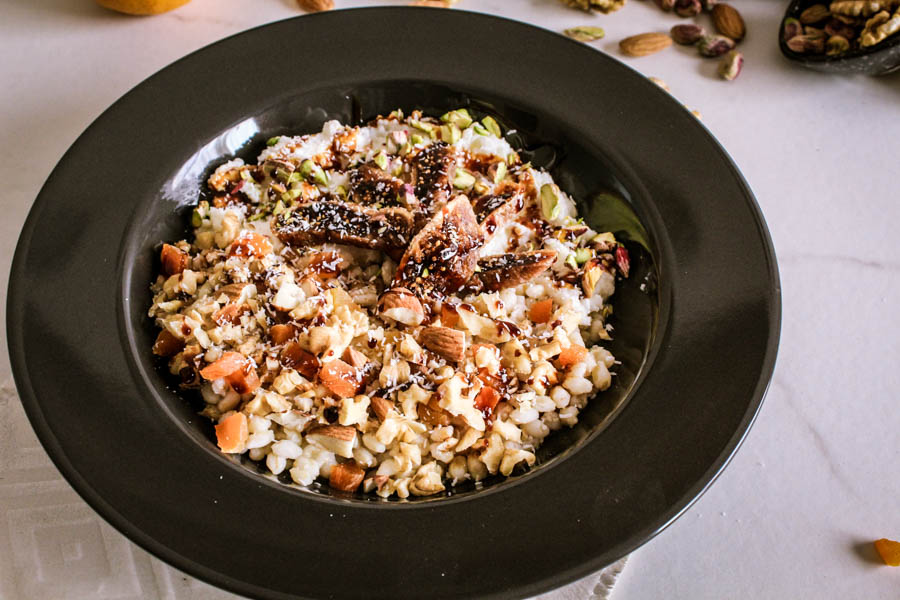
Wheat is the most common cereal available all over the world. In its unprocessed whole shape it is considered one of the healthiest and richest grain in nutrients. It helps in lowering heart diseases, regulating the blood glucose levels in diabetics. It is a major source of energy. It stills keep some of the nutrient even after processing but to get the most of it, it is always better to consume it in its whole shapes like all the other grains. Whole wheat is rich in mineral salts, calcium, magnesium, potassium, sulfur, chlorine, arsenic, silicon, manganese, zinc, iodide, copper, vitamin B and vitamin E.
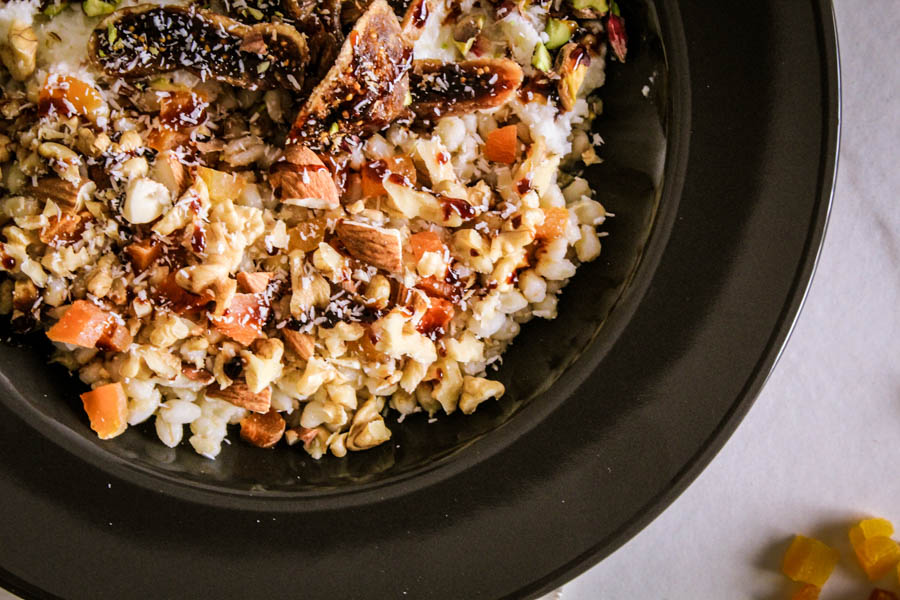
Many conditions like anemia, mineral deficiencies, gallstones, breast cancer, chronic inflammation, obesity, asthenia, tuberculosis, gastrointestinal conditions, skin diseases, and respiratory illnesses, cardiovascular ailments, balancing cholesterol levels and pregnancy and breastfeeding problems are quickly improved by consuming a whole wheat rich diet. Especially since germinated wheat comprises 3 times more vitamin B than the common kind. The list of the benefits of whole wheat is honestly endless I can go on for days if you like to know more please check this link!
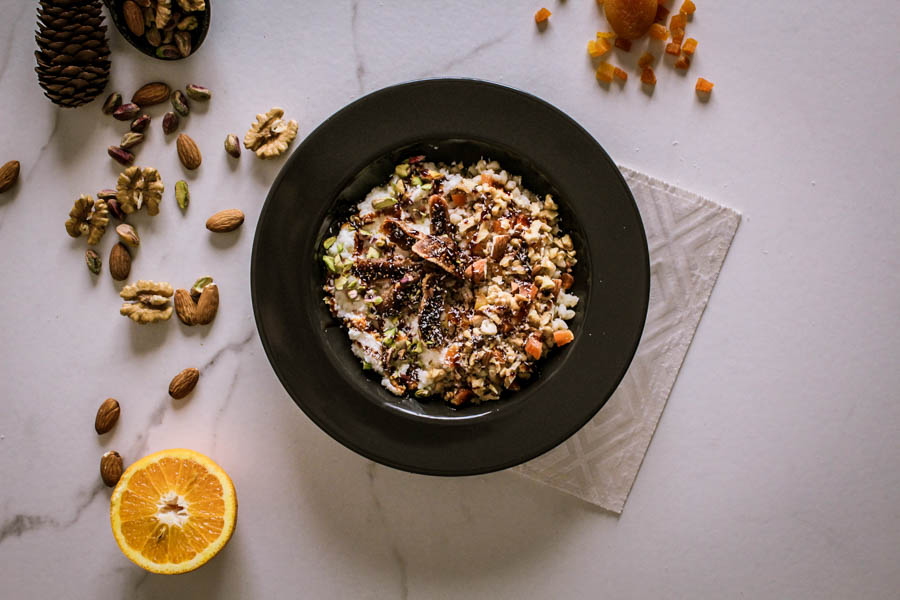
Now back to my recipe. At St. Barbara day in addition to Qatayef and Maakroun cookies we do whole wheat bowl that we mix with rose water, flower water and sugar and some people add nuts and dry fruits and eat it. From this tradition I had the idea for this morning bowl but I wanted to be more balanced and adequate as healthy breakfast. So now we know the benefits of the whole wheat, we needed an extra source of protein and some good fats to have a balanced energy giver bowl that we will keep us going till lunch time.
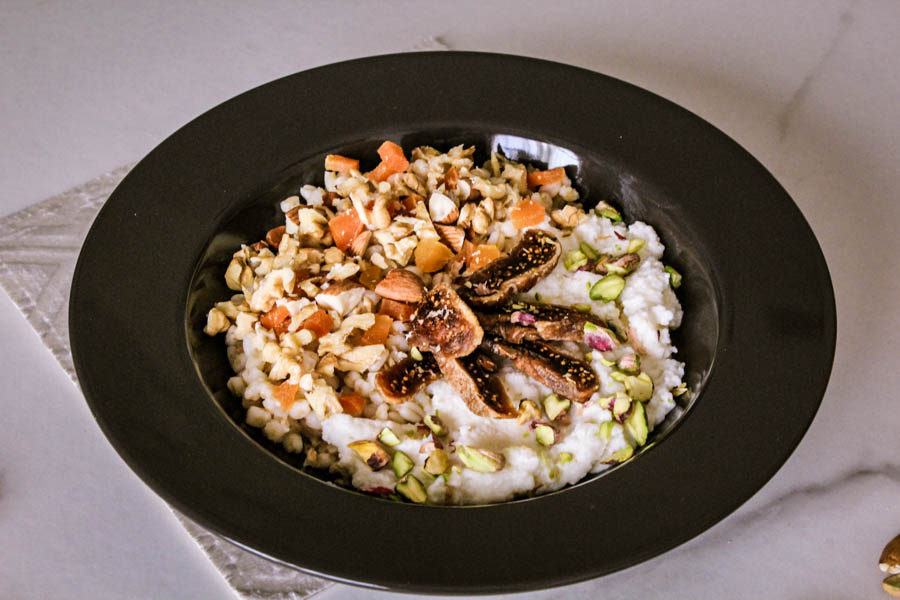
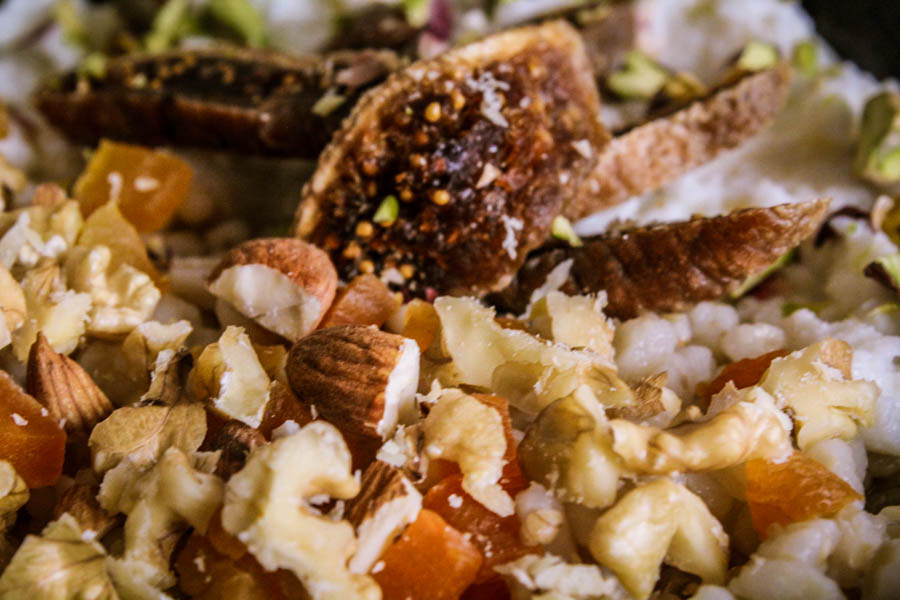
With the qatayef recipe we did Ashta (Lebanese cream) filling for the raw qatayef based on ricotta cheese, so I used this as protein source and I wanted to keep that ethnic side. I recommend for you all to try this recipe as mentioned below, but you can always mix and match with other similar ingredients, you can substitute the Ashta with some Greek yogurt and the date syrup with honey or any other natural syrup. Personally I love to keep the original ethnic taste of this bowl.
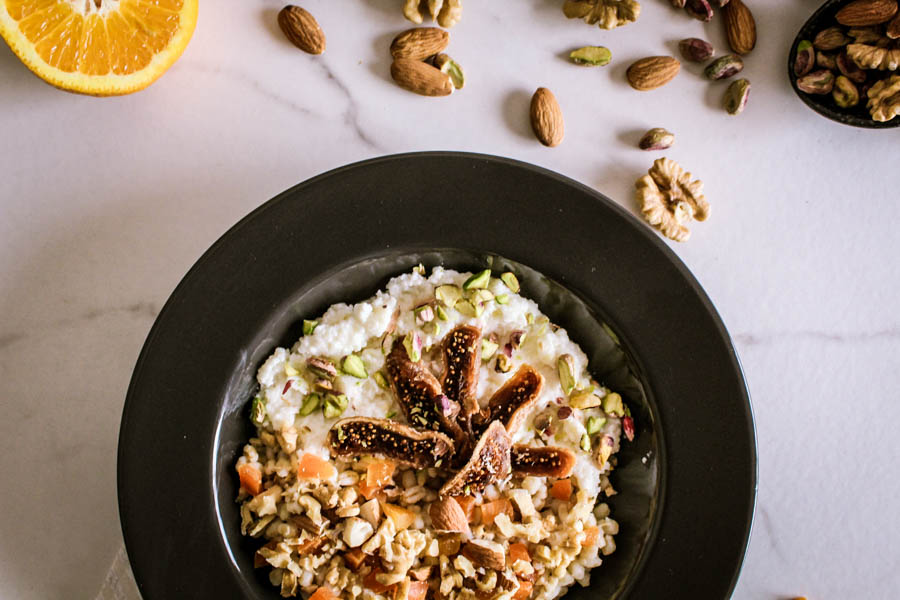
Hope you try this recipe and love it, it is a good change instead of your oatmeal or smoothie bowl in the morning.
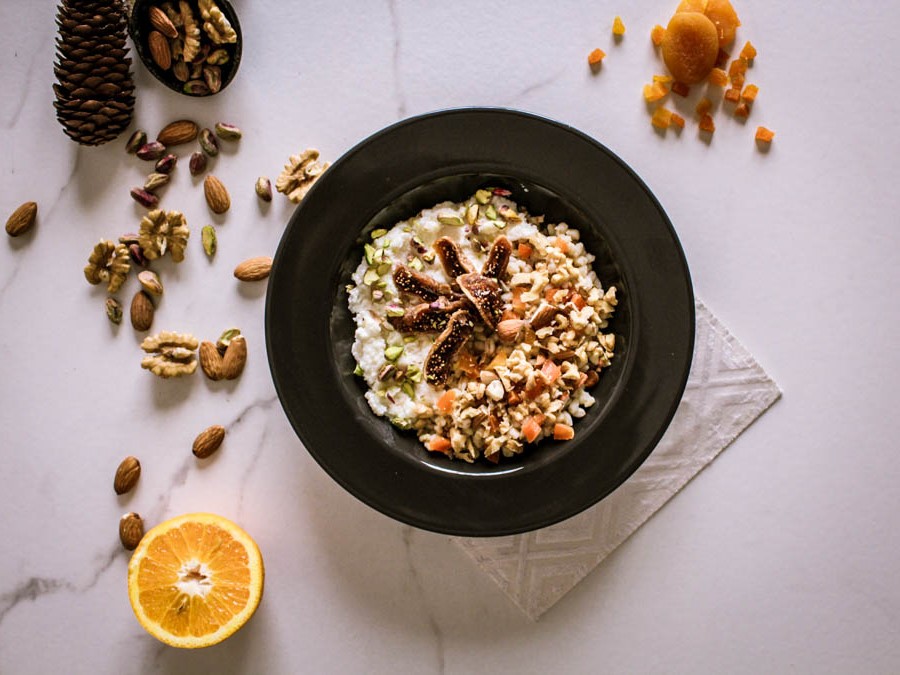
Lebanese ethnic whole wheat bowl:
Serve 1 bowl
INGREDIENTS:
- ½ cup cooked whole wheat grain
- ½ orange, juiced
- 1 tsp. rose water
- 1 tsp. flower water
- ½ cup Ashta
- ¼ cup mixed raw nuts chopped (pistachio, almond, walnuts, …)
- 2 dry apricots, cut into small cubes
- 2 dry figs, cut into wings
- 1 Tbsp. Date syrup
- 1 Tbsp. shredded coconut
INSTRUCTION:
- Mix the cooked whole wheat * with orange juice, rose water and flower water and pour into the serving bowl
- Add the Ashta beside in the serving bowl. *
- Sprinkle the nuts, dry fruits
- Drizzle the date syrup. *
- Sprinkle the shredded coconut
- Enjoy!
NOTES:
*to cook the wheat: wash and drain very good. Add to each one cup uncooked whole wheat grain 2 cups of water, bring it to boil. Once it boil, add ¼ cup of “Anise” Tea and simmer for around 30 minutes till the grains are cooked. You can drain and store in the fridge up to one week.
*for the Ashta recipe check the Qatayef recipe, and you can easily replace it with Greek yoghurt
*you can switch from date syrup to any other organic natural sweetener like honey, maple syrup …
